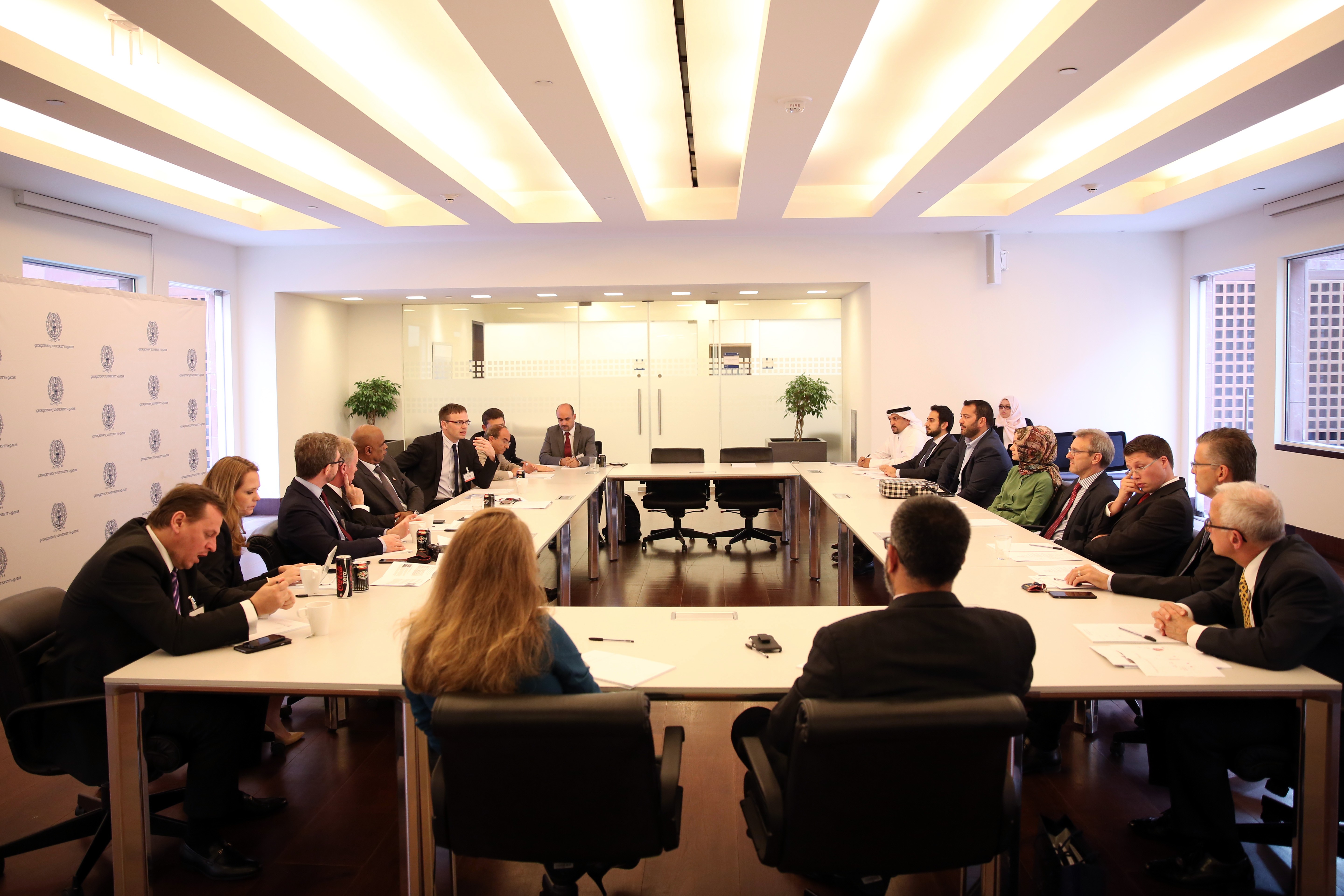GU-Q Panel Briefs Visiting NATO Delegation
A panel of Georgetown University in Qatar (GU-Q) scholars and experts led by the dean, Dr. Gerd Nonneman, recently hosted a visiting delegation of members of the NATO Parliamentary Assembly (PA) Science & Technology Committee at a special session on the university’s Education City campus.
The NATO delegation was comprised of 8 members of parliament, hailing from Germany, Norway, Italy, Romania and Estonia, and was led by the Chairman of the Sub-Committee on Energy and Environmental Security, Jan Arild Ellingsen (Norway). At the request of the NATO PA, Georgetown University assembled the experts panel to provide an academic and nuanced understanding of a wide variety of topics relating to Qatar’s economic, social, economic and military situation both domestically and within the broader regional context.
>
Specific discussion points included Qatar-NATO relations, energy politics, cyber security, migrant issues, food and water security, the work of the GCC in regional conflicts, as well as education and job diversification in Qatar’s bid to move away from over-dependence on energy resources.
“Diversification has been a buzzword in the region for two decades,” said Dean Nonneman, in response to questions on the role of education in Qatar’s future development plans. “Qatar Foundation’s investment in education is intended both to make the country a regional hub of excellence and to build the critical skill levels they will need to diversify the economy: so it makes perfect sense that it has become a key priority,” he explained.
Commenting on the benefit of Georgetown’s expert analysis and input on the work of the NATO Parliamentary Assembly, Chairman Jan Arild Ellingsen said: “We brought high expectations with us to the meeting, and Georgetown fulfilled all of them. The knowledge and expertise here at GU-Q, including their ability to explain and share these complex ideas in a way that we are able to understand, is really what makes their input so helpful to us.”
The GU-Q panel of experts included Dr. Kai-Henrik Barth, Senior Assistant Dean for Faculty Affairs and Research, Dr. Harry Verhoevan, Professor of Government, Mr. Bernard Assaf, Information Security and Applications Manager, Mr. Moamer Qazafi, Chief Communications Officer, and Dr. Zeynep Topaloglu Professor of Economics and the Co-Lead Principal Investigator of the Safeguarding Food and Environment in Qatar (SAFE-Q) research project. The GU-Q was also joined by Dr. Adel AbdelGhafar-Visiting Fellow from Brookings Doha Center and Mr. Martin Reardon - Senior Director of QIASS & SVP of Soufan from Qatar International Academy for Security Studies.
Prior to the panel discussions, the visiting delegations were treated to a tour of the university’s high tech purpose-built campus and facilities, including the largest library open for use by the public. The NATO PA Science & Technology Committee delegation were in Qatar for a series of high level meetings with His Highness the Emir, as well as various ministers, government officials, and representatives of the advisory council.
Since its creation in 1955, the NATO Parliamentary Assembly has provided a unique specialized forum for members of parliament from across the Atlantic Alliance to discuss and influence decisions on Alliance security. Through its work and activities, the Assembly facilitates parliamentary awareness and understanding of the key issues affecting the security of the Euro-Atlantic area, and supports national parliamentary oversight over defense and security.
This article was provided by http://qatar.sfs.georgetown.edu/
